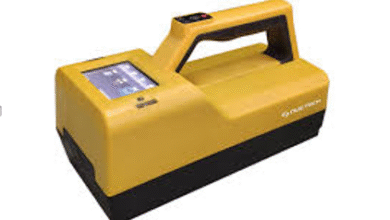
The world is getting so interconnected these days that you couldn’t afford to have interruptions, such as power outages or low power issues. But there is already a solution for that—the use of a power storage device. This can significantly prevent the impact of these interruptions by providing backup power to small-scale businesses or more extensive energy to larger systems.
Different power storage solutions
- Uninterruptible power supply (UPS)
This is one of the most popular short-term backup power solutions to cater to the needs of offices or homes. This can provide immediate power for the prevention of data loss and more time to safely shut down the equipment. The standby power on these devices can range from a few minutes to an hour. This makes an uninterrupted power supply unit a great choice for many short-term applications.
- Battery energy storage systems (BESS)
This is a device that stores excess power from renewable sources, such as solar panels, or one that stores off-peak grid energy to be used during peak times. They can be made of lithium-ion or lead-acid, having a capacity that ranges from a few kWh to cater to the needs of a small office to hundreds of kWh or larger setups.
- Solar battery systems
You should be familiar with this type of energy storage, which is best for offices to reduce dependency on the grid and energy costs. Solar power has become a practical choice because this type of battery can store solar energy to be used during cloudy days or on evenings.
- Portable power stations
Smaller offices can also take advantage of a mobile power source for remote tasks, such as the portable power station. It is a compact and rechargeable device that can power laptops and small appliances or devices. The power it can hold ranges from 0.5 kWh to 3 kWh.
- Commercial scale battery banks
Larger offices or buildings can benefit from this type of energy storage because it combines a number of batteries, resulting in a greater capacity. This battery technology provides substantial energy that ranges from tens to hundreds of kWh, which also offers longer backup durations.
Which one is ideal for daily use?
If you want to have a constant power solution, you can go for the BESS to handle the daily needs of an office setting. The most ideal choice is the lithium-ion-based solar battery system. However, although this can be a practical choice for many industries, it can be a costly device to consider.
You might want to get your hands on the UPS instead, which can be more cost-efficient. Despite its different configuration as opposed to the BESS, you can rest assured that it can significantly serve its purpose. That is because it provides immediate power backup during short power outages. Moreover, it is great at protecting computer units and servers from potential power surges, drops, or spikes.
This device also has the capacity to activate instantly during a power outage. So, it enables work continuity by keeping productivity steady. At the same time, it is quite affordable and doesn’t require complex installations. Thus, it is a great option for small to medium-sized offices.




